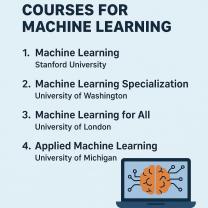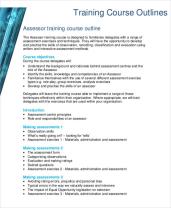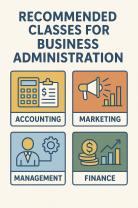What is the best way to learn math online?
The best way to learn math online depends on your learning style, goals, and current level. Here are some effective strategies and resources:
1. Structured Online Courses
Khan Academy (free, covers basics to advanced topics step by step).
Coursera / edX (university-level math courses with video lectures, exercises, and certificates).
Brilliant.org (interactive, problem-solving based learning).
These platforms provide a curriculum-like path, which is great if you want systematic progress.
2. Practice-Based Learning
Use websites like IXL, Mathway, Cymath, or WolframAlpha to practice problems.
Solve lots of exercises—math is best learned by doing, not just reading.
3. Video Tutorials
YouTube channels like 3Blue1Brown, PatrickJMT, and Professor Leonard offer clear explanations.
Visual learning can make abstract concepts much easier.
4. Interactive Tools & Apps
Desmos (graphing calculator for visualizing functions).
GeoGebra (geometry and algebra visualization).
Photomath (scan problems and see step-by-step solutions).
5. Study Communities
Reddit (r/learnmath), Math Stack Exchange, or Discord study groups.
You can ask questions, get alternative explanations, and stay motivated.
6. Set Goals & Build a Routine
Decide whether you’re learning for school, career, or personal interest.
Break down big topics (e.g., algebra → functions → equations → word problems).
Commit to daily or weekly practice, even if just 30 minutes a day.
7. Active Problem-Solving
Don’t just watch—pause videos and solve examples yourself.
Review mistakes carefully—they often teach you more than correct answers.
👉 Best approach: Combine a structured platform (like Khan Academy or Coursera) with problem-solving tools (Desmos, WolframAlpha) and community support (forums, study groups).
Best Way to Learn Math Online
The best way to learn math online is by adopting a structured, active, and consistent approach.
Active Learning: Don't just watch videos; work through problems yourself. Use the platforms' practice exercises and assessments.
Structured Study Plan: Set a regular schedule and stick to it. Break down complex topics into smaller, manageable chunks.
Targeted Resources: Use high-quality platforms that match your current level and learning style (e.g., visual, conceptual, or procedural).
Seek Help: Actively look for explanations for concepts you don't understand, whether from a tutor, a community forum, or another video.
Review Regularly: Practice recall of older material to solidify your understanding and prevent forgetting.
Popular Online Platforms for Learning Math
Several excellent platforms cater to different needs, from K-12 to advanced college-level math:
Khan Academy: Offers a massive library of free video lessons and practice exercises covering almost all levels of math, from arithmetic to calculus.
Coursera/edX: Provides structured university-level courses (often free to audit) taught by professors from top institutions, focusing on deeper, often application-based, learning.
Brilliant: Focuses on interactive, problem-solving-based learning to build intuition and conceptual understanding, rather than just rote practice.
IXL/DreamBox: Primarily used for K-12 adaptive practice, adjusting difficulty based on performance to help students master specific skills.
YouTube: Many excellent individual math educators and channels provide supplementary lessons and concept explanations.
How to Find a Good Online Math Tutor
Finding a good tutor involves assessing their qualifications, teaching style, and reliability:
Use Reputable Tutoring Platforms: Sites like Wyzant, Chegg Tutors, and Varsity Tutors vet their tutors and provide systems for scheduling and payment.
Check Qualifications and Reviews: Look for tutors with degrees in mathematics or education and positive reviews specifically mentioning their ability to explain complex math concepts clearly.
Assess Teaching Style: A good tutor should be able to diagnose your weaknesses and adapt their teaching method to your learning style. Ask for a short, initial consultation to gauge their communication skills and approach.
Confirm Availability and Technology: Ensure they can meet during times that work for you and are proficient with the necessary online tools (e.g., virtual whiteboards, screen sharing).
Benefits of Learning Math Online
Learning math online offers significant advantages over traditional classroom settings:
Flexibility and Pacing: You can learn at your own speed and schedule lessons around other commitments. If you struggle with a concept, you can pause, rewatch, and practice until you master it.
Access to Diverse Resources: You gain access to a vast pool of instructional material (videos, interactive problems, practice tests) from experts around the globe.
Personalized Learning: Many platforms use adaptive technology to tailor the material to your exact knowledge gaps, ensuring you spend time learning what you need most.
Cost-Effectiveness: Many high-quality math resources (like Khan Academy) are free, and online tutoring can sometimes be less expensive than in-person options.
How to Stay Motivated When Learning Math Online
Maintaining motivation requires setting the right expectations and integrating helpful habits:
Set Clear, Achievable Goals: Instead of "learn calculus," aim for "master the chain rule this week." Small, consistent successes build momentum.
Track Your Progress: Use the progress trackers on learning platforms or a simple checklist to visualize how far you've come. This validates effort and provides a sense of accomplishment.
Find an Accountability Partner or Community: Discuss problems and concepts with others in an online forum, study group, or with your tutor. Knowing others are on the same journey helps reduce isolation.
Apply What You Learn: Try to find real-world or interesting applications for the math concepts you're studying. Connecting the theory to practical use makes the learning feel more relevant and rewarding.
Take Short Breaks and Reward Yourself: Schedule short breaks to prevent burnout. Acknowledge your hard work with a small, planned reward after completing a major unit or tough assignment.














mathlove
on September 28, 2025Practicing every day really is the key. I used to skip, but now I do 20 minutes daily and it’s paying off.
VisualThinker
on September 28, 2025I love the YouTube channel 3Blue1Brown—the visual explanations make complex ideas so much easier. Using it together with Desmos has boosted my learning a lot.
MathLearner
on September 28, 2025I used to find math really difficult, but after trying Khan Academy I started to see real progress. Like the article says, practicing a little every day makes a big difference.